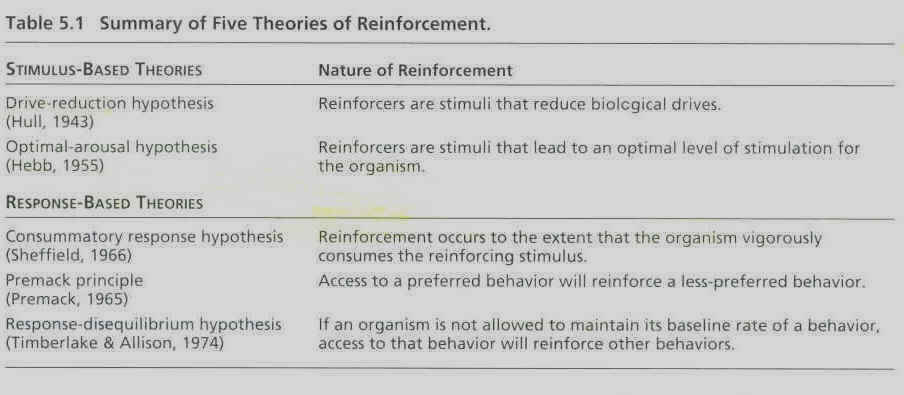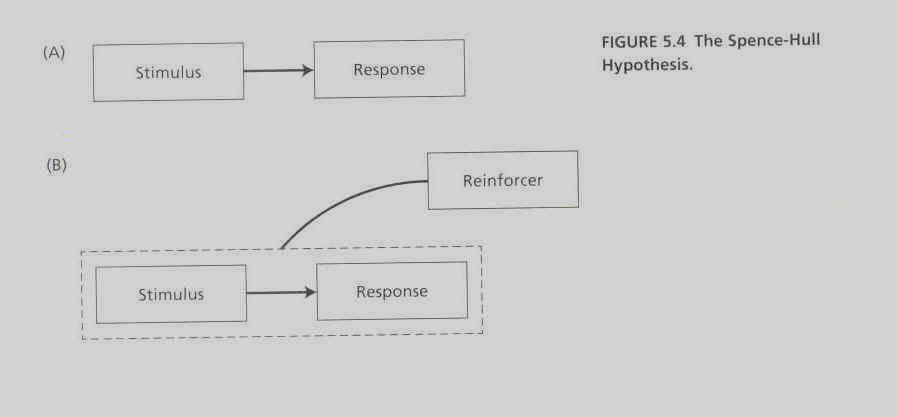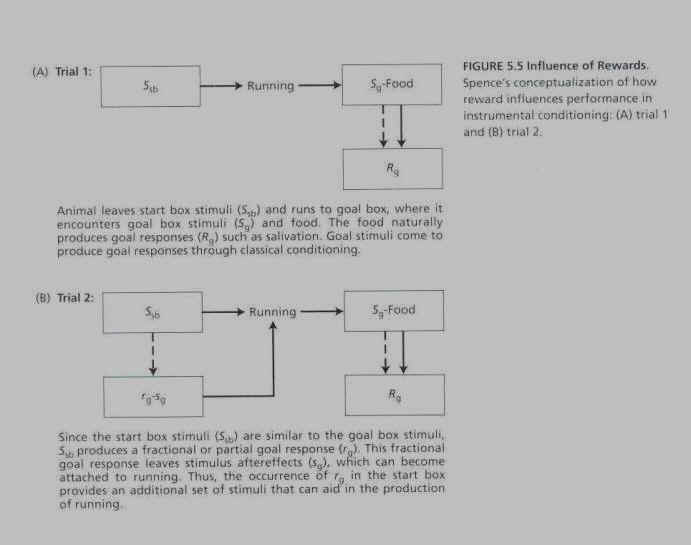
Psy
342 Learning & Memory
Chapter 5
Instrumental/Operant Conditioning: Theoretical Issues
Some main questions:
(1) What makes a reinforcer reinforcing?
(2) Is reinforcement necessary for learning or just for performance?
(3) Why does extinction occur when reinforcement is eliminated?
(4) How does punishment work to decrease the performance of a particular behavior?
I. The Nature of Reinforcement
Reinforcer—Any event that causes preceding behaviors to increase in frequency
A. Primary vs. Secondary Reinforcers
Primary Reinforcer—events that are capable of producing behavior changes naturally without the benefit of any prior learning.
Secondary Reinforcer—events that function as reinforcers because of their consistent association with one or more primary reinforcers.
B. Theories of Primary Reinforcement
1. Stimulus-Based Theories of Reinforcement
a. Hull's Drive-Reduction Hypothesis--stimuli that reduce drives are capable of reinforcing emitted behavior
Learning is adaptive & biological in nature
Problems:
Miller & Kessen (1952)
Sheffield & Roby (1950)
Organisms tend to SEEK stimulation (Kish, 1966)
Conclusion--Events that reduce drives will function as reinforcers, but an event need not reduce a drive in order to function as a reinforcer.
b. Optimal Arousal Hypotheses--Organisms function optimally under an intermediate level of environmental stimulation...Either increases or decreases in stimulation can serve as reinforcers.
Problems:
How should an organism's arousal level be measured?
What does "arousal" mean anyway?
Predictions are sometimes incorrect
2. Response-Based Theories of Reinforcement
a. Consummatory Response Hypothesis (Sheffield, (1966)--when any behavior is followed by a vigorous/persistent consummatory response, reinforcement of the behavior is strong
b. Premack Principle (1965, 1971)--Any kind of emitted response (not just consummatory) can serve to reinforce operant behavior. Specifically, any response that is preferred by an organism can serve to reinforce the performance of a less preferred response....Reinforcement is relative...
c. Response-Disequilibrium Hypothesis (Timberlake & Allison, 1974)--Reinforcement depends on the situation...the same stimulus or response may or may not serve as a reinforcer in all situations. Like the Premack Principle, a preferred response can serve to reinforce a less preferred response. And unlike the Premack Principle, a less preferred response can be made to serve as a reinforcer for a more preferred behavior--if the right conditions are created.

II. Role of Reinforcement
A. Thorndike-Hull Hypothesis

B. Spence-Hull Hypothesis


C. Response-Outcome Theories


III. Theories of Extinction

1) How are primary reinforcers like unconditioned stimuli (US)?
2) List 3 examples of a primary reinforcer.
3) List 3 examples of a secondary reinforcer.